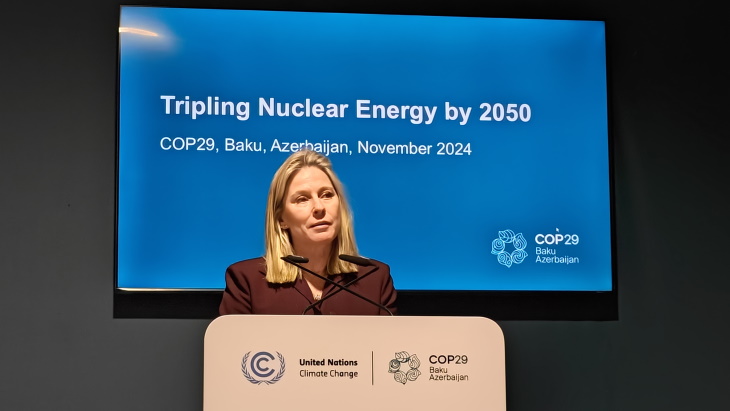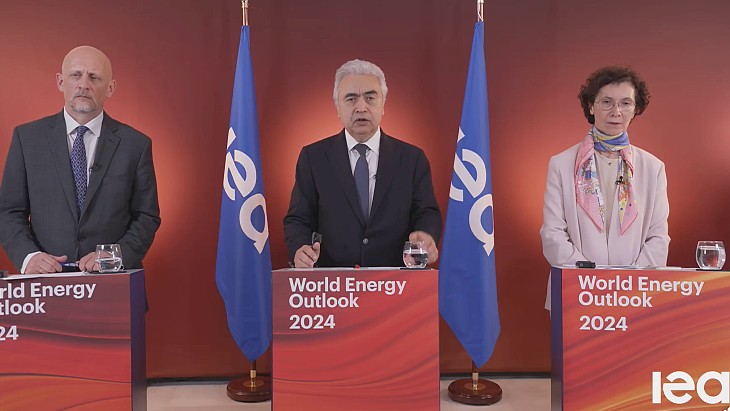India sets target for net-zero
.jpg)
"In the midst of this global brainstorming on climate change, on behalf of India, I would like to present five nectar elements, Panchamrit, to deal with this challenge," Modi said.
"First - India will reach its non-fossil energy capacity of 500 GW by 2030.
"Second - India will meet 50% of its energy requirements from renewable energy by 2030.
"Third - India will reduce the total projected carbon emissions by one billion tonnes from now onwards till 2030.
"Fourth - By 2030, India will reduce the carbon intensity of its economy by less than 45%.
"And fifth - by the year 2070, India will achieve the target of net-zero. These panchamrits will be an unprecedented contribution of India to climate action."
At the same time, Modi called for global action on climate finance to support developing countries' climate efforts. "While we all are raising our ambitions on climate action, the world ambitions on climate finance cannot remain the same as they were at the time of the Paris Agreement," he said, adding: "India expects developed countries to provide climate finance of USD1 trillion at the earliest."
"For many developing countries, climate change is looming large over their existence. We have to take big steps today to save the world. This is the need of the hour and this will also prove the relevance of this forum. I am confident that the decisions taken in Glasgow will save the future of our future generations, giving them the gift of a secure and prosperous life," he said.
India declined to set targets ahead of the adoption of the 2015 Paris Agreement, the legally binding international treaty on climate change adopted by 196 Parties at COP 21 which entered into force on 4 November 2016. Modi's Glasgow announcement is the first time that India has set a net-zero target.
Ahead of COP26, the leaders of the G20 nations - including India - reaffirmed their commitment to the Paris Agreement on climate change and vowed to cooperate to reach net-zero emissions by around 2050, 20 years sooner than the 2070 date pledged by Modi.
India's 2017 total CO2 emissions, according to figures from the International Energy Agency, were of 2162 million tonnes - the third highest in the world. However its energy consumption of 0.7 tonnes of oil equivalent per capita was one of the world's lowest, and its per capita carbon emissions of 1.6 tonnes are also low.
The Indian government is committed to growing its nuclear power capacity as part of its massive infrastructure development programme. According to World Nuclear Association, the country has 23 reactors currently in operation, with 7 under construction and ambitious targets to grow nuclear capacity.

_99697.jpg)










